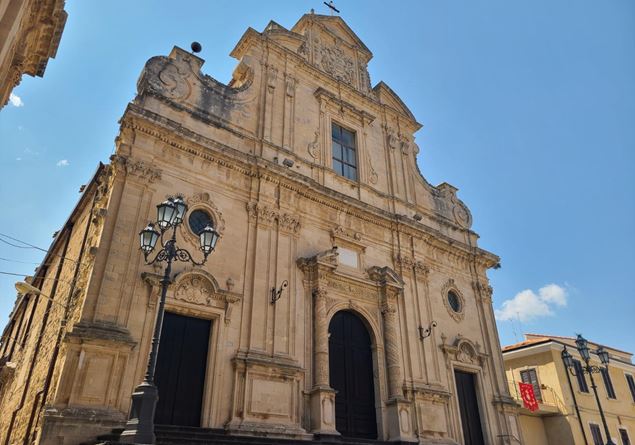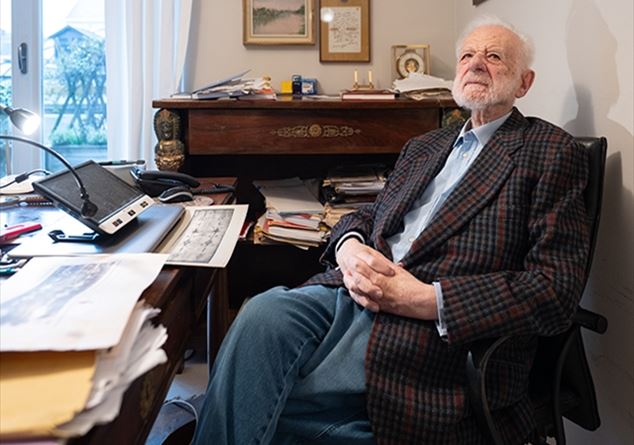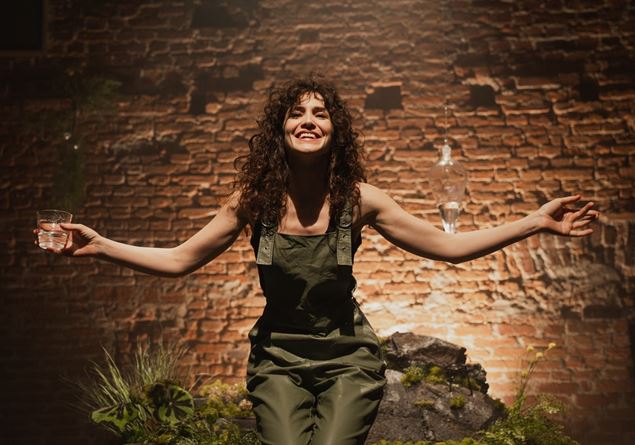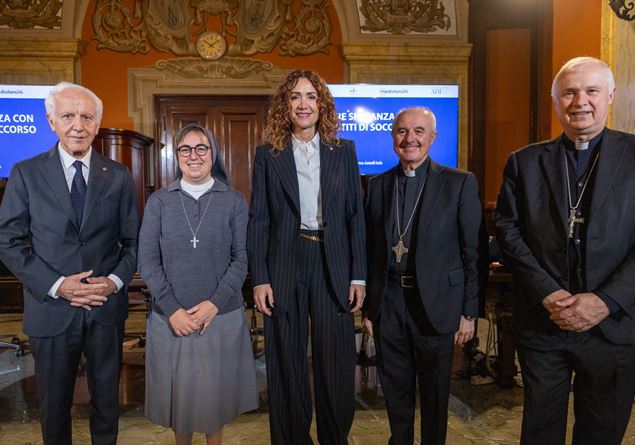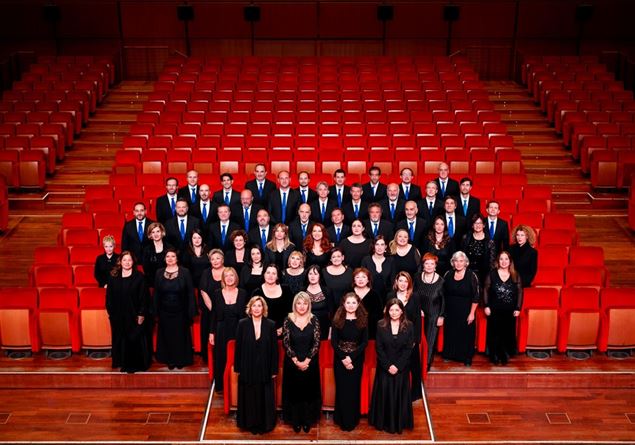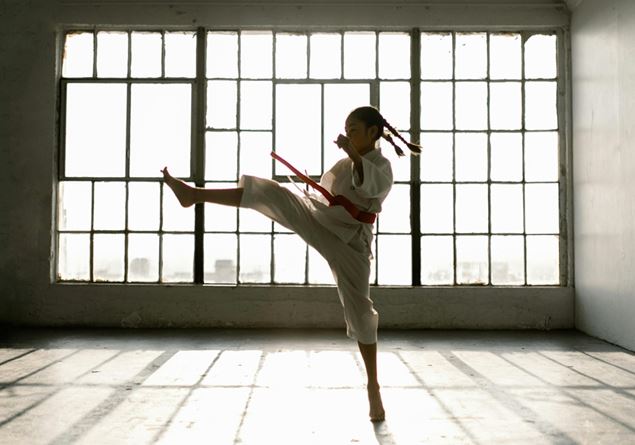For kind concession of the publisher Rubbettino, we publish the chapter of the book Microcosm Sicilyby Salvo Guglielmino, dedicated to the relationship between Pippo Baudo and Militello Val di Catania, his country of origin, where his funeral took place
by Salvo Guglielmino
There is a small church in Militello Val di Catania, built next to the Sasso where the legend wants to stop to rest Sant’Antonio from Padua in his wandering on foot from Lentini to Vizzini. But those who come to this white and sunny village, in addition to passionate about its traditions, to its splendid Baroque, to the colorful patronal feasts, to its unforgettable cuisine, has always sought the birthplace of Pippo Baudo, a graceful palace with a white and yellow facade, built in neoclassical style during the 1800s alongside Piazza Sant’Agata. For many years, Militello has had to have his fame to Pippo Baudo, so much was ancestral, intimate, almost symbiotic, the link between Pippo and his city. In the many interviews released on his extraordinary career, Baudo often remembered his carefree childhood in Militello, the outdoor games with his friends, relatives, the oratory, the expectations of his parents, his dearest affections, the scents of his land, unique in the world. «If I close my eyes the scent of the caponata brings me back in time and reminds me of my mother. It took a whole morning to prepare it. The caponata has particular smells, a mixture of aubergines, courgettes, tomatoes, peppers. But it must be done very carefully because you have to cook the various ingredients separately and then bring them together and make a unique flavor. It is not very digestive, in fact then long walks had to be taken, “he said once in a long interview with the” Corriere del Mezzogiorno “. But I, knowing him, would also add the cult for Sicilian wine that was never missing on his table. Even when he went to dinner out.
One evening in Naples, the Italian city that Baudo perhaps loved more in his life, with his popular musicality, the genius of his artists, the insatiable desire to live, Pippo ordered with extreme kindness to the manager: “He brings us a bottle of good” Californian “wine”. The poor man rushed his eyes. And Baudo: «Quiet, little California is my land, Sicily. At my house, in Militello, there was a carter who had a barrel on the cart and the barrel suck the wine with the barrel that was then poured into the bottles and was sold out. I seem to feel the smells still. The Nero d’Avola was not bottled and sold out, cost little and it was exceptional. Today it is an extraordinary precious wine ». Baudo loved to surprise people. He always knew how to snatch an applause, arouse emotions, stimulate memories better than anyone else. He quoted by memory the pages of Capuana, Verga, Pirandello, “authors in front of which we should kneel”, he always said. His was a profound, almost religious devotion, to history, culture, the arts of Sicily. Not without a vein controversy. «There are Sicilians who make luck outside and then” snub “our land a little. They get from the air of the continent, which, among other things, is a comedy who played the Catania actor Angelo Musco, and deny their origins. Instead I always want to say: I am Sicilian. I with Militello, my country, I have a continuous contact relationship. When I go there in my house, I feel the sense of belonging. I breathe an ancient air, as I returned with my father, my mother, the relatives. I don’t want to break this cord, I will never do it ».
Pippo was just like that: a simple, humble, extremely cultured man he knew and had been able to use the potential of the television tool better than any other artist in our country. Baudo was not only one of the few real Italian “show mans”, capable of designing programs, interviewing characters of all realities, entertaining the public, playing and singing. Nobody better than him knew the international record market, the tastes of the public, discovering hundreds of young talents. Everyone owes him something, after all. It was among the few, in many years of television, to know how to “invent” something new and stimulating for the public. He had humbly been able to start again, after seasons of Purgatory, mixing, in some of his lucky broadcasts, the culture and history of our country with entertainment and entertainment. A rarity. In a television season characterized by the bleak and overflowing presence of “talk” capitalized by politics, by too many “talent shows” and “reality”, Baudo had had the courage to reject this dangerous “cocktail”, defending the role of the public service and a Rai that must try to “fly high” with original, refined, highly artistic and spectacular quality products. A Rai who informs, entertains, educates. «Why wonder of youth disaffection to study, professional training, sacrifice to achieve quality results? The young people risk modeling themselves on a “guard” television, provincial and intrusive, increasingly idle and without cultural identity ».
This has always supported Baudo, in public and privately, with a tip of nostalgia for a public service that made their towing to the best of our artistic and literary production. The fact of airing “quiz” and “reality” is one of the declarations of helplessness and defeat of the television vehicle. Professionalism does not count anything anymore. The physical aspect of the character is rewarded, the seductive force of the image, the transgressive opportunity, the gossip. Baudo, in all his career, has always defended his coherent choice to propose a more sober and less vulgar model to make a show, less linked to the logic of advertising and the market and more in tune with the mission and function of a true public service. A respectable man, consistent with his ideas. He had never denied that he had been a Christian Democrat, without having ever ridden or prevaricated the roles of politics, or fall into the rhetoric of the nostalgia of the First Republic. It has always been close to the social culture of a free union like CISL, participating as “entertainer” (and always free of charge), in many trade union initiatives in the nineties. Romano Prodi, his friend Sergio D’Antoni, and many other politicians, several times had asked him to take the field, to apply for President of the Sicily Region. He would certainly have won. It would have been an excellent administrator of public affairs. But Baudo had always refused to use his popularity for personal interests, without ever subtracting himself, however, in making his contribution to noble political and social campaigns, of high profile, dispenser advice and above all distilling confidence in the future, also to current administrators. He was a man who was moved when he spoke of his land, his family, the many moral and material devastation. But always optimistic for the future of Sicily. «It has remained an infinite beauty, unique in the world, that our progenitors have left us inheritance, sure that we would have respected it, this nature. Which we have not done. Bitter my land, bitter and beautiful. But the beauty will win. The beauty will triumph ».





